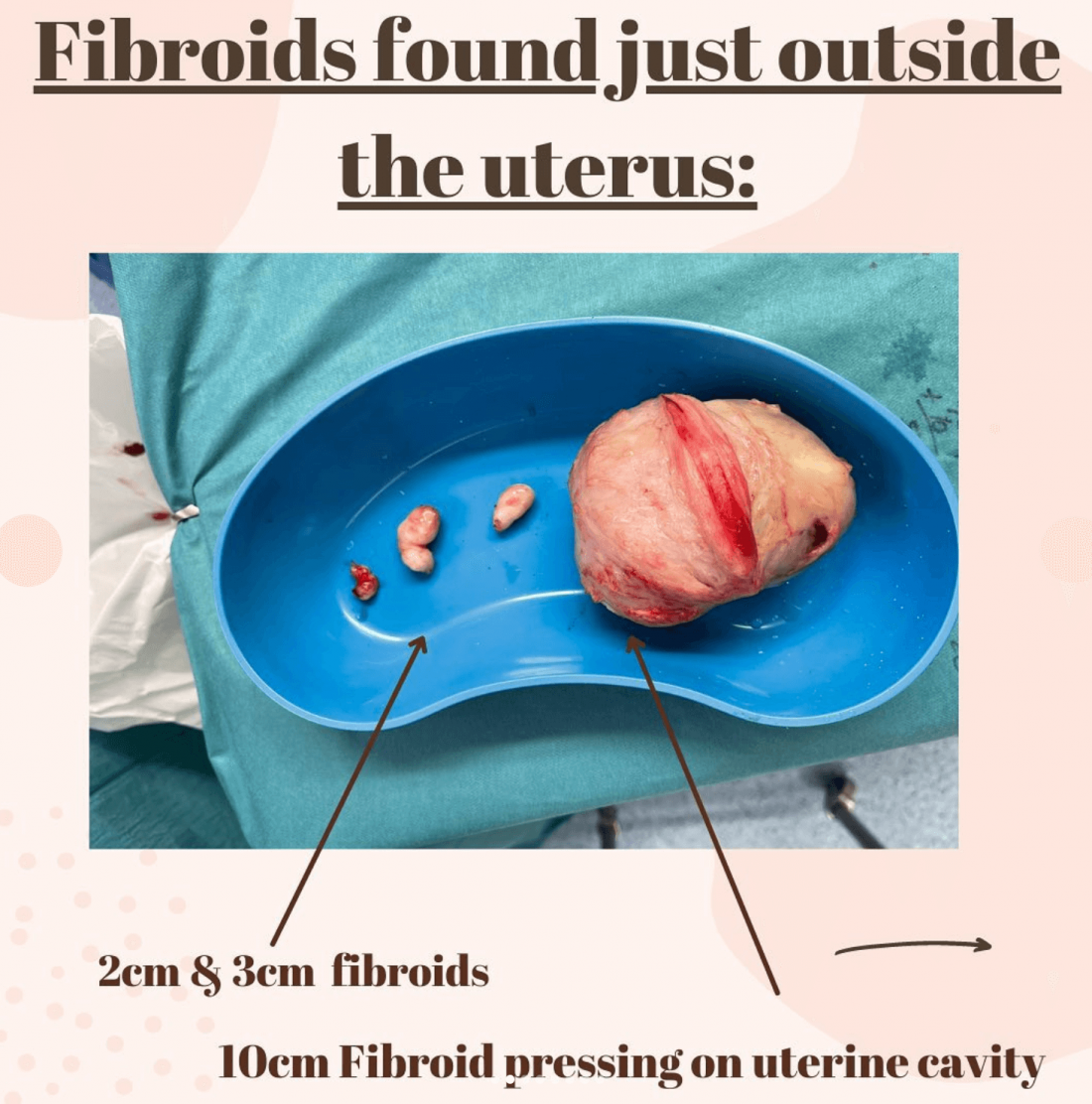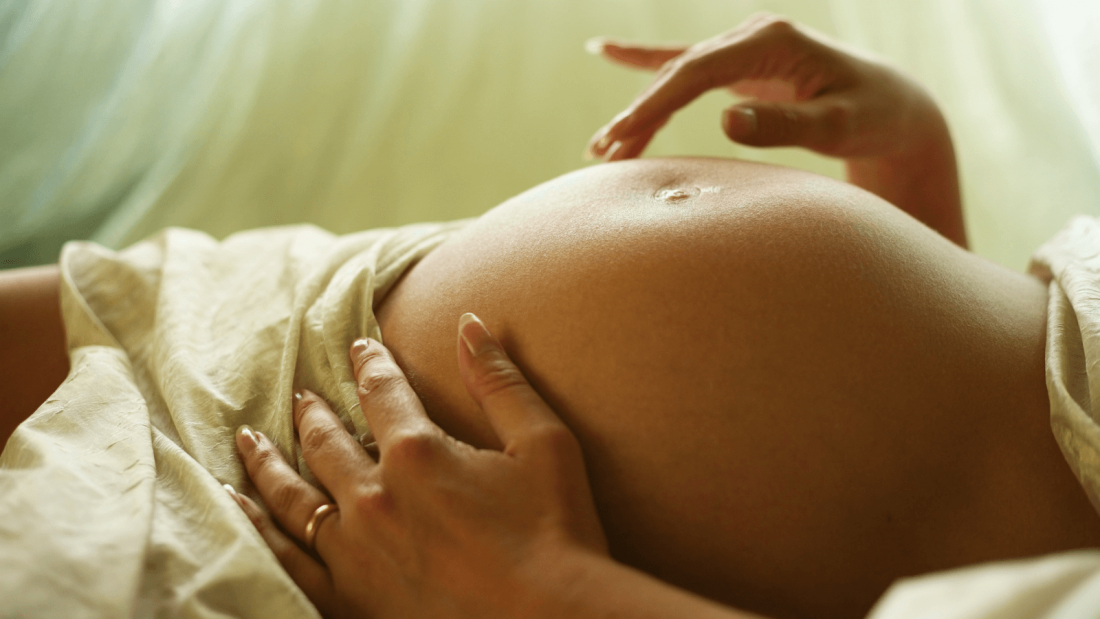Uterine fibroids are extremely common in Black Women, but what effect do they have during a pregnancy? A midwife talks about what you should know.
Rochelle is a midwife and founder of the social media platform Melanin Mothers. On Instagram, she shared a post detailing information about fibroids in pregnancies. In this article, we dig deeper into the risks, treatments and more about this topic.

A 2015 study noted that 80% of Black women will have fibroids. This is compared to 70% of white women by age 50. Although many women with fibroids go on to have babies, there is still an increased risk of fibroids affecting pregnancy. From Toni Braxton to Yvonne Orji, more celebrities are sharing their journey with the uterus condition with the hope of dismantling the taboo around it.
What are fibroids?
Fibroids are non-cancerous growths that develop in or around the womb and are made up of muscle and fibrous tissue. They can vary in size and positioning. Many women may be unaware they have fibroids if they have no symptoms.
However, for those who do experience fibroid symptoms, particularly if they are large in size, Rochelle’s Melanin Mother’s post stated that symptoms can include heavy and/or painful periods, abdominal pain, lower back pain and pressure sensation. It can also include frequent urination, constipation, pain or discomfort during sex, and possible infertility.

Image Credit: Melanin Mothers
She also mentioned that diagnosis of fibroids can be found through various methods including a transvaginal ultrasound scan, hysteroscopy, biopsy, laparoscopy and more.
Although it’s not definitively known what causes fibroids, there have been studies that indicate it could be a genetic condition. There have also been suggestions that increased exposure to oestrogen could enhance the risks of developing fibroids.
Health body ‘green lights’ new one-a-day oral pill for fibroids treatment
How do fibroids in pregnancy affect women?
Fibroids can present a slightly increased risk during pregnancy. How much it affects a pregnant woman, can depend on the size of the fibroids. For example, if they are particularly large, this could lead to an increased risk of infertility. In her post, Rochelle noted that other risks with fibroids in pregnancy can include: “miscarriage, preterm labour, excessive pain and pressure sensation.”
Having fibroids during pregnancy could also mean you may need a caesarean section for larger uterine fibroids, and a greater risk of excessive bleeding after birth. This could also have an impact on your emotional and mental wellbeing.
Treatment for fibroids in pregnancy
During pregnancy, there are of course reduced options for treatment due to the risk of the foetus being carried. Usually different forms of surgery are offered as a treatment to remove fibroids, however, during pregnancy many of these options are not viable. Instead, your doctor might encourage bed rest, hydration, and mild pain relievers to help you cope with fibroids during pregnancy.

There are however examples of rare cases where a myomectomy is performed in women during the second half of their pregnancies. Although not suitable for all types of procedures, this specific surgery is designed to remove fibroids from the wall of your womb while leaving the uterus intact. Your gynaecologist could consult more closely with you on whether it’s suitable for you depending on the size, positioning and number of your fibroids.
The NHS website notes: “Myomectomies are carried out under general anaesthetic and you’ll usually need to stay in hospital for a few days afterwards. You’ll be advised to rest for several weeks while you recover.”
Let’s talk about fibroids…
Although myomectomies are usually effective in treating fibroids, there is still a chance that they could grow back in the future. Women with large fibroids that block the vagina, may be required to have a caesarean section instead of a natural birth.
Follow Melanin Mothers for more pregnancy tips from Rochelle the midwife.
Written by Maxine Harrison












